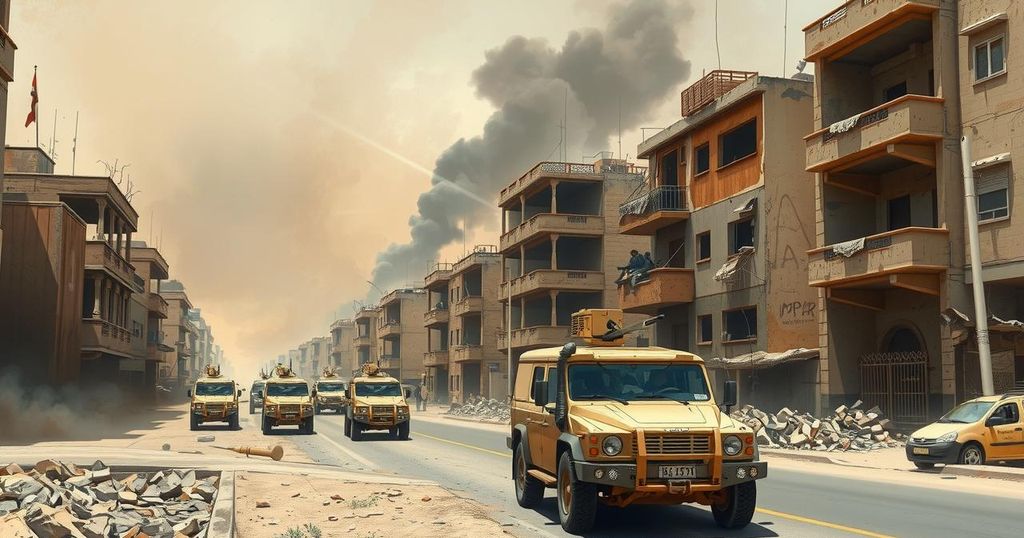Sudan’s Civil War: Recent Battles in Khartoum and Their Implications
Sudan’s civil war continues as the Sudanese Armed Forces announce major victories in Khartoum against the RSF. Despite retaking control of key areas, the conflict persists, showing no signs of resolution. The humanitarian impact is severe, with millions displaced and facing dire food shortages. Experts warn of potential fragmentation amid ongoing hostilities.
In Sudan, the Armed Forces (SAF) have achieved significant victories against the Rapid Support Forces (RSF) in Khartoum, marking what some hope could be a pivotal moment in the ongoing civil war as it approaches its two-year milestone. Despite these successes, the conflict, which has severely impacted the nation, is far from resolution.
The Sudanese army has recently celebrated two notable victories; they recaptured the airport and the presidential palace in Khartoum from RSF control. Army chief Abdel Fattah al-Burhan proclaimed Khartoum to be “free” after regaining control of these critical areas, which not only symbolize military might but also enhance the strategic position of the SAF in the ongoing struggle.
The takeover of these locations is expected to influence the dynamics of the civil conflict, potentially affecting perceptions among international leaders. While the SAF remains unwilling to engage in negotiations, regaining Khartoum could provide them with leverage in any future peace talks. Control over the airport is also significant due to its previous role as a supply hub for the RSF.
However, the root cause of the war stems from deep-seated disagreements regarding the integration of the RSF into the national armed forces, and this divide shows no signs of closing. Fierce clashes continue in various regions beyond Khartoum, including Darfur and Kordofan, indicating that peace remains elusive. Both the army and RSF persist in launching extensive airstrikes, exacerbating civilian casualties and heightening the humanitarian crisis.
This conflict has resulted in over 12 million displaced persons, with a severe hunger crisis afflicting nearly 25 million people across Sudan. Reports indicate escalating famine conditions, particularly in parts of Darfur, as both factions obstruct humanitarian assistance. The systematic looting of aid supplies by the RSF has further compounded the dire situation.
Experts caution that the ongoing power struggle could lead to Sudan’s fragmentation, likening it to the events surrounding South Sudan’s secession in 2011. The RSF’s recent establishment of a breakaway government has heightened concerns among international stakeholders, contributing to an already precarious scenario. In the foreseeable future, a war of attrition seems likely as both parties remain inflexible, amidst calls for renewed negotiations.
The situation in Sudan remains precarious following recent military victories by the Sudanese Armed Forces against the RSF in Khartoum. Although these victories may shift battlefield momentum, a resolution to the civil war appears distant due to entrenched discord between the factions. The humanitarian crisis is escalating, affecting millions, and the risk of further fragmentation of the country looms large. Consequently, the immediate future may involve continued conflict unless significant mediating efforts are initiated.
Original Source: www.aljazeera.com




Post Comment